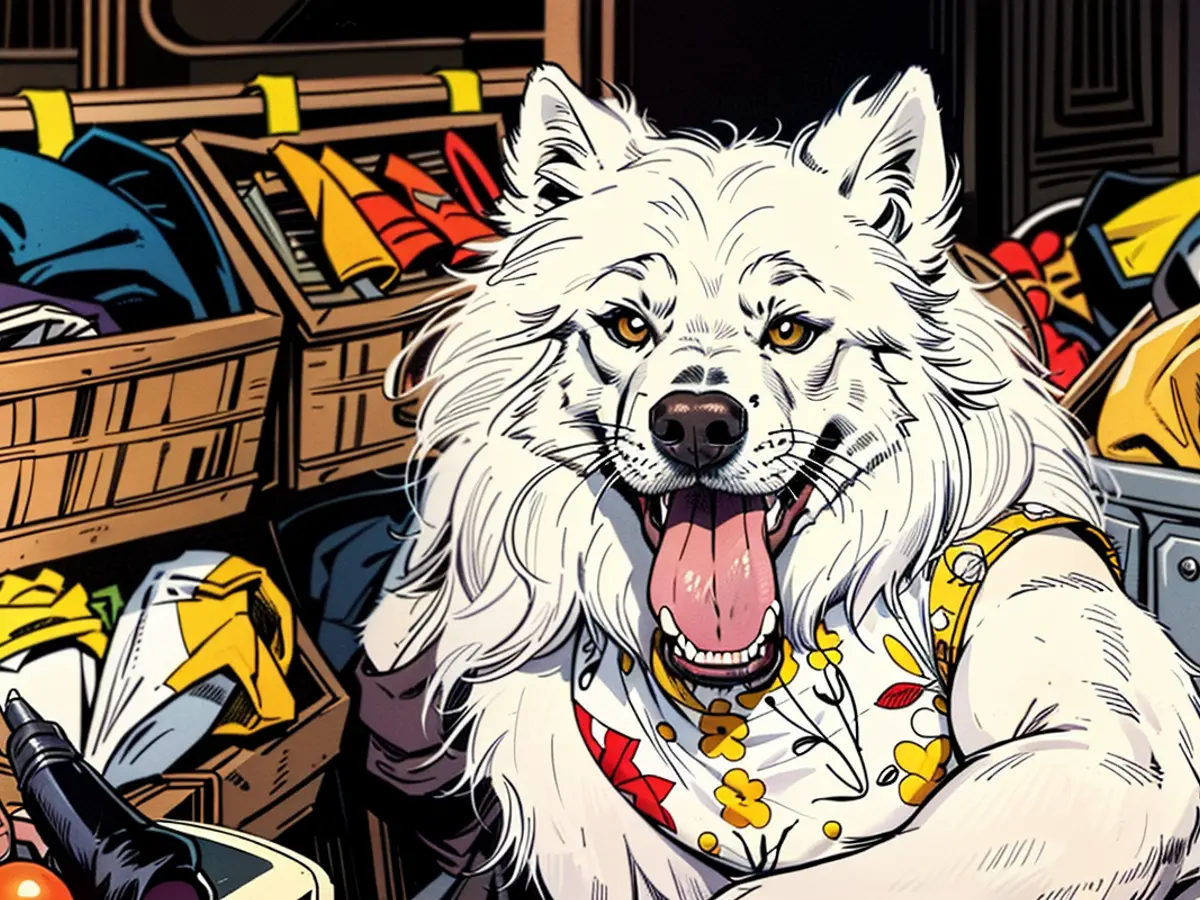Animals in China generate "treat funds" in cafes as their owners delegate them for employment.
"It's similar to sending kids off to school," a 27-year-old PhD student explained to CNN as she handed over OK for her new part-time job.
Xue felt it would be beneficial for her dog to "have a change of scenery," as she and her partner often leave home during the weekends.
"Sending OK to the coffee shop is a win-win. She gets to socialize with other dogs and won't feel lonely," she said.
Pet coffee shops are popular in China. Patrons can interact with the animals that populate the shop, allowing the owners to charge more for the experience. Typically, visitors pay an entrance fee or just order a drink.
Furthermore, Xue mentioned that OK's job in the coffee shop helped them save money. If they left her at home, they would need to run the air conditioning continuously, which can get expensive.
"Summers in Fuzhou can be harsh," she added.
Xue's idea might seem unconventional, but it's a growing trend in China. The term for this phenomenon is "Zhengmaotiaoqian," which translates to "earning snack money."
This phrase suggests that pets are essentially working part-time or full-time at coffee shops and then returning home to their families at night, much like human employees.
Though "earning snack money" might seem endearing and enjoyable, it's a reflection of the times. By the end of this year, China is expected to have more pets than toddlers, according to Goldman Sachs.
Recently, both coffee shop owners and pet owners have been posting recruitment ads and CVs on Xiaohongshu, China's equivalent of Instagram.
In one viral post, titled "What's the salary for working at a cat coffee shop?," a cat coffee shop owner revealed the compensation for their staff, which included a gray and white cat named Datou, who allegedly received "five cans of cat food after taxes."
Similarly, another cat coffee shop owner announced their need for more "cat employees," offering a daily snack and a 30% discount for the employees' family and friends.
CNN reached out to various coffee shop owners for comment.
Regarding Xue, she discovered pet coffee shop ads on Xiaohongshu and thought it would be fun to send OK to work. She eventually found a coffee shop called "Yezonghui" in Fuzhou and messaged the owner. After an evaluation period, OK was given the "job."
"My OK is the star of the coffee shop!" she said proudly.

"Clingy and master of the purr"
Not all animals have as much luck in their job searches.
Xin Xin, a 33-year-old Chinese teacher at an international elementary school in Beijing, has two cats (one black-and-white and one orange) and a Shiba Inu dog.
She has been trying to find a job for her 2-year-old tuxedo cat, Zhang Bu’er, but hasn't had any luck yet. Xin posted Zhang Bu’er's resume on Xiaohongshu on September 8, hoping for a job at a cat café, but hasn't received any offers.
"He's clingy and is a master of purring! A cat destined to work at a cat café!" Xin wrote on Zhang Bu’er's curriculum vitae, noting that they "only expect some cans of cat food or snacks as her salary."
"I thought (cat café) owners would reach out to me – now it looks like I need to take the initiative and send the (cat's) resume out," she lamented to CNN.
Xin said Zhang Bu’er spends his days sleeping and is explosive at night, disturbing her and her husband's slumber.
Even more frustrating for Xin, Zhang Bu’er would always curl up on her laptop when she was working late.
"He just lazed around, watching me slave away like a workhorse," she joked.
"We want him to have a taste of the grind and earn his own food," she said.
Xin estimated she spends about 500 yuan ($71) per month on feeding her two cats.
"I think (Zhang Bu’er) gets too bored during the day," she said. "A job would help him burn off some energy."
China's first cat café opened in the southern city of Guangzhou in 2011, and the number of similar establishments has grown by 200% each year in the country, according to CBNData, China's state-linked financial paper.
By 2023, there were over 4,000 cat café-related companies in the country.

"Despite Xin's efforts, her cat Zhang Bu’er hasn't found a job at a cat café yet, prompting her to consider sending his resume to more establishments. She believes a job would give Zhang Bu’er something to do and help him burn off energy."
"Similar to Xue, Xin hopes that having Zhang Bu’er work at a cat café will help offset their pet expenses. With more pets than toddlers expected in China by the end of this year, the trend of pets earning 'snack money' through part-time jobs at coffee shops is becoming increasingly popular."
Read also:
- Fear of escalation in the Middle East: US Secretary of State Blinken travels to the region again
- Government circles: US Secretary of State Blinken to travel to Middle East again
- Bridging days 2024: How you can double your vacation this year
- Germany has wanderlust: how tour operators and airlines are looking ahead to the next travel year








